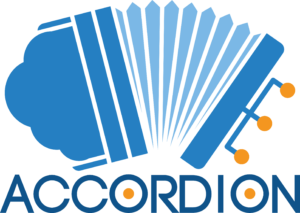258 Profiles

365FarmNet
Digital farm management: a global solution with an ecosystem of partners allowing each farmer to choose and use only what he needs, all on a single platform

3DS Outscale
3DS OUTSCALE’s technology makes an automated and adaptable Cloud available to businesses, supporting them in the most complex IT projects while controlling their operational aspects. You boost your IT infrastructure’s reactivity, with request responses that only take a few seconds.

5G-MEDIA
5G-MEDIA aims at innovating media-related applications by investigating how these applications and the underlying 5G network should be coupled and interworked to the benefit of both.

A1 Digital
A1 Digital focuses its business activities on two areas: industry-specific applications in the IoT and cloud-based solutions for information and communication technology.

ACCORDION
ACCORDION establishes an opportunistic approach in bringing together edge resource/infrastructures (public clouds, on-premise infrastructures, telco resources, even end-devices) in pools defined in terms of latency, that can support NextGen application requirements.

ACTiCLOUD
ACTiCLOUD proposes a novel cloud computing architecture for drastically improved management of cloud resources, targeting both resource efficiency and scalability. By utilizing modest investments on hardware intelligence that enables true resource disaggregation between multiple servers, ACTiCLOUD progresses current state-of-the-art in hypervisors and cloud management systems, promoting holistic resource management both at the rack scale and across distributed cloud sites.

Advaneo Data Marketplace
The data marketplace has been developed as a decentralized portal where all relevant and possibly sensitive raw data always remains with the data provider and only is transferred directly – peer to peer – to the buyer in the event of a purchase.

ADVANTICS Care Pathway Transformation
Cloud-based data-driven digital health solution is designed to help improve patient outcomes and reduce cost of treating chronic cardiovascular conditions, by helping providers standardise care, reduce overall length of stay, and lower readmission rates.

AFarCloud
AFarCloud will provide a distributed platform for autonomous farming that will allow the integration and cooperation of agriculture Cyber Physical Systems in real-time in order to increase efficiency, productivity, animal health, food quality and reduce farm labour costs.

AGID Cloud Marketplace
AGID Cloud Marketplace is a catalogue of AGID certified cloud service providers.


ALIGNED
ALIGNED will develop models, methods and tools for engineering information systems based on co-evolving software and web data.

Amable DIS
The eco-system will develop a wide spread offering from scientific support through skills and education to commercial service offers.

Ansaldo S.p.A.
Ansaldo gathers and analyzes equipment data as a basis for Predictive Maintenance and Service to facilitate faster, more efficient processes

APIS IT Shared Services Centre
government ‘cloud’ IT infrastructure, digitalization of Croatian public administration sectors, defining, implementing and maintaining the technology and best practices that support eGovernment. The projects range from informatization of the largest systems of state and local government, introduction of personal identification number (OIB), fiscalization, EU projects of Customs and Tax Administration, development of geoportal and utility information system to joint information system for cadastre and land registry.
